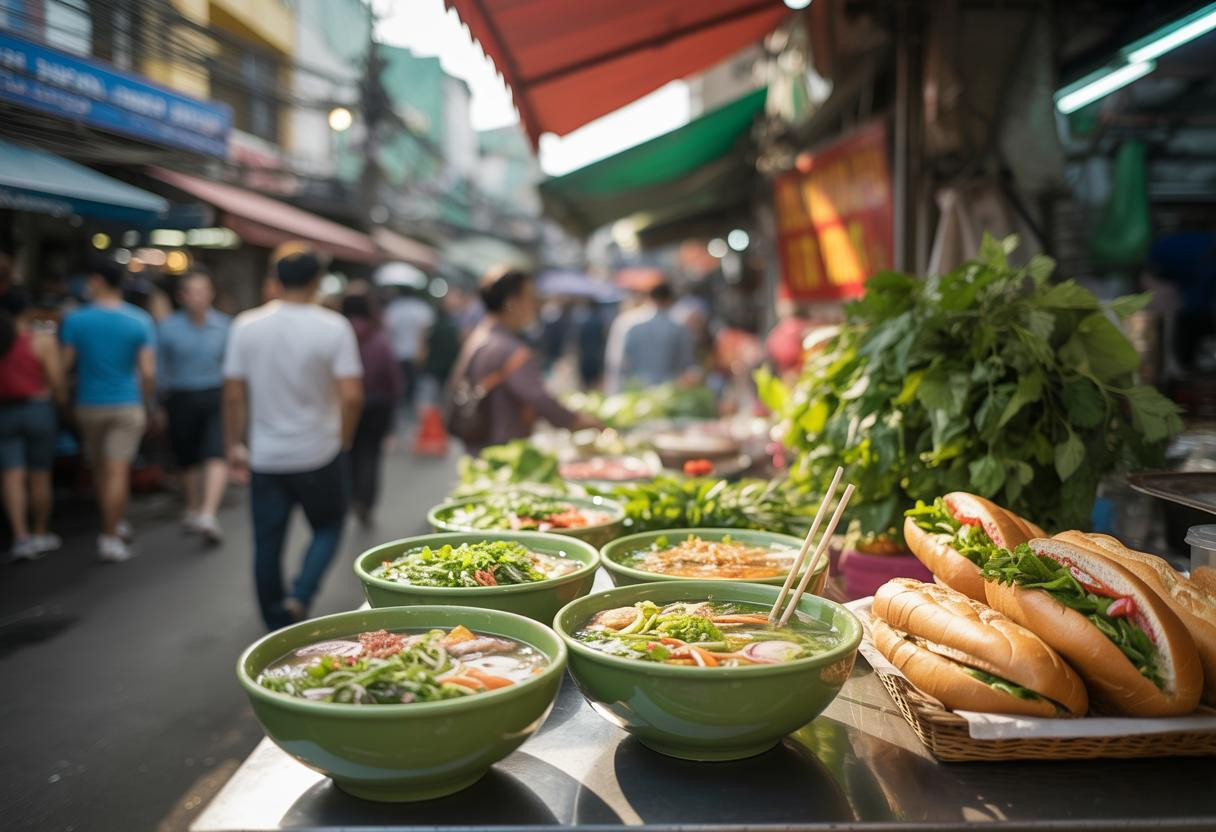Ho Chi Minh City’s vegan scene exploded by 33% in just one year, catapulting this Vietnamese metropolis into the global top 10 vegan-friendly cities alongside traditional leaders like London and Berlin. This dramatic shift reveals how rapidly the world’s plant-based landscape is evolving, with surprising new destinations challenging Western dominance while established hubs face unexpected declines.
The latest data from HappyCow’s 2025 rankings shows that veganism’s geography is undergoing a radical transformation, driven by health consciousness, environmental awareness, and innovative plant-based health benefits that are reshaping urban dining cultures worldwide.
The surprising new leaders reshaping vegan geography
London maintains its crown with 3,620 vegan-friendly listings and 154 fully vegan restaurants, but the real story lies in the newcomers. Ho Chi Minh City now boasts 1,214 vegan-friendly establishments, representing a 41% surge in vegan businesses that’s unprecedented in global rankings.
Mexico City’s debut in the top 10 signals Latin America’s growing plant-based movement, while traditional powerhouse Los Angeles surprisingly saw a 22% decline in fully vegan restaurants, highlighting how market saturation and economic pressures are reshaping even established vegan hubs.
Asia’s unexpected vegan revolution
Vietnam’s capital represents more than just numbers—it embodies a cultural shift where traditional meat-centric cuisines are embracing plant-based alternatives. Local entrepreneurs are adapting beloved dishes like pho and banh mi using innovative plant-based cooking techniques, creating familiar flavors without animal products.
This growth reflects health motivations rather than purely ethical concerns, with younger Vietnamese consumers increasingly connecting plant-based eating to wellness and prosperity.
European strongholds maintain innovation edge
Berlin’s 1,772 vegan-friendly venues continue setting global standards for diversity and creativity. The city’s famous vegan döner kebabs and international plant-based cuisines demonstrate how authentic local culinary experiences can successfully transition to plant-based formats.
Barcelona and Lisbon round out Europe’s top performers, with Lisbon showing 10% growth in vegan restaurants and strong municipal support for sustainable dining initiatives.
What drives a city’s vegan-friendly transformation
Per capita density tells a different story than raw numbers. While major metros dominate headlines, Santa Fe ranks #1 in the US for vegan restaurants per 100,000 residents, followed by Bend, Oregon. This reveals how smaller cities with concentrated vegan communities can offer superior accessibility.
Economic factors play crucial roles—cities with strong tourism economies like Barcelona leverage plant-based dining as a sustainability draw, while entrepreneurial hubs like Portland foster innovation through local supply chains and artisanal approaches.
Practical insights for vegan travelers and residents
Digital platforms like HappyCow have become essential infrastructure, enabling real-time navigation of vegan options globally. The app’s user review system reveals that taste innovation trumps ideology in emerging markets, while established scenes prioritize sustainable food practices and ethical sourcing.
Choosing your ideal vegan destination
For maximum variety, London and Berlin remain unmatched. For innovation and emerging culture, Ho Chi Minh City offers exciting discoveries. For concentrated accessibility, smaller cities like Santa Fe provide easier daily plant-based living despite fewer total options.
Future-proofing your vegan lifestyle
Watch for cities implementing pro-sustainability policies—Lisbon and Barcelona’s green initiatives suggest governmental support will increasingly drive vegan infrastructure development. Asian markets show the fastest growth potential, while traditional hubs face pressure to innovate beyond market saturation.
The shifting landscape reveals deeper changes ahead
These rankings reflect more than dining preferences—they reveal how cities adapt to environmental pressures, health consciousness, and changing demographics. As Ho Chi Minh City demonstrates, the future of vegan-friendly cities lies in rapid cultural adaptation rather than gradual evolution, suggesting more surprising entrants will reshape global plant-based geography in coming years.
